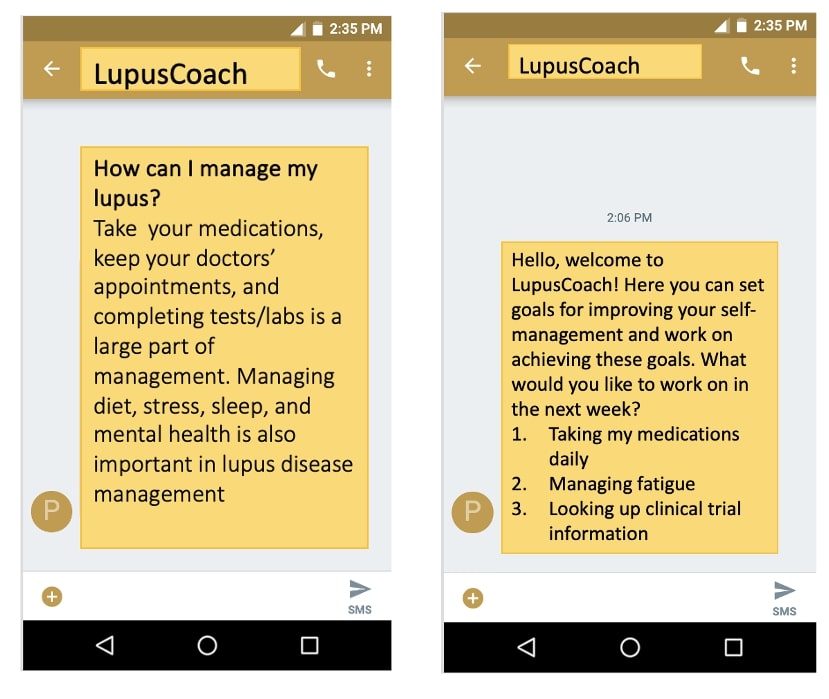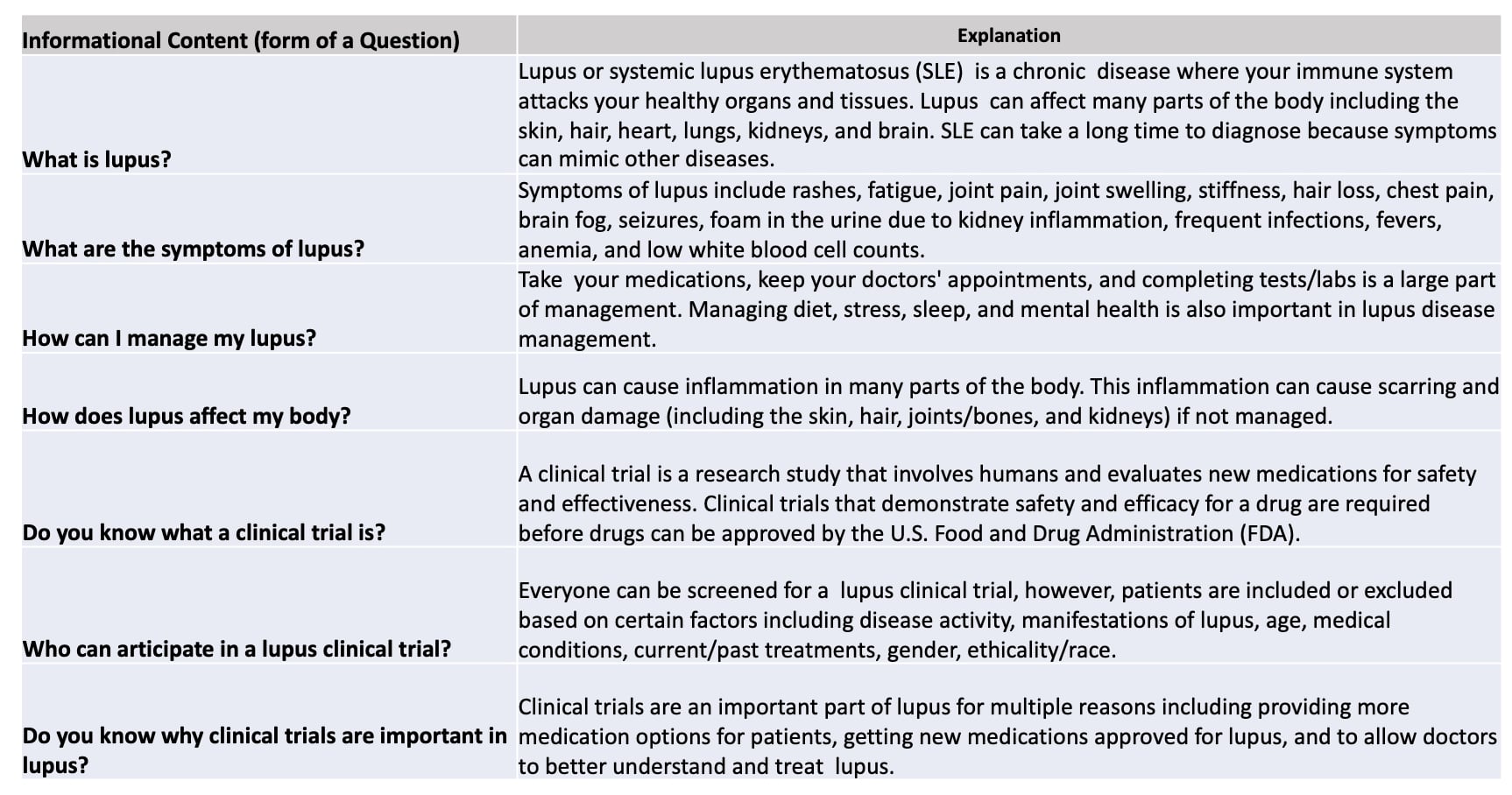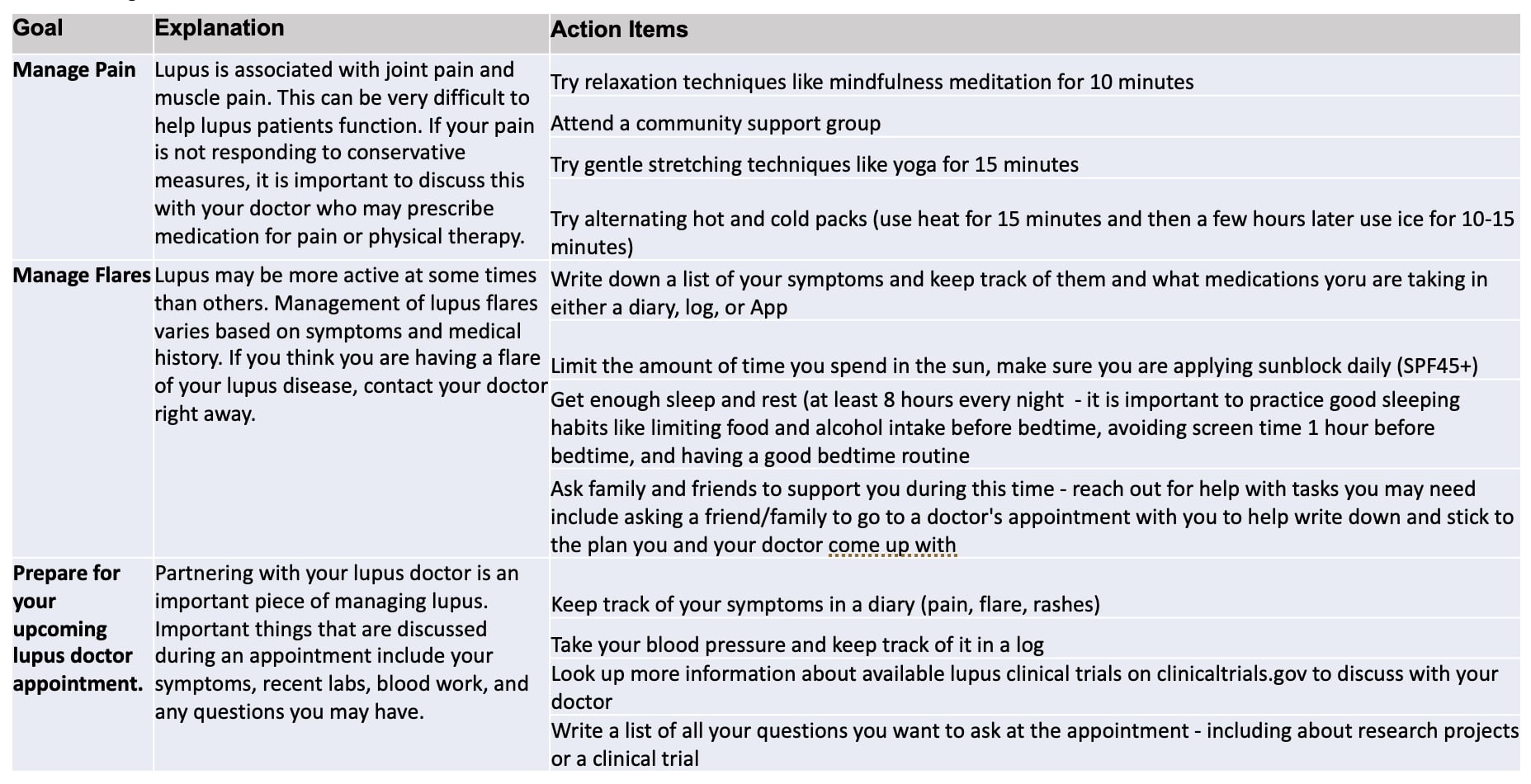Session Information
Session Type: Poster Session C
Session Time: 10:30AM-12:30PM
Background/Purpose: Artificial Intelligence (AI) is poised to take the world of medicine by storm. The next decade will likely bring major changes in technology use in healthcare including the incorporation of AI in diagnosis, treatment, provider interaction, and patient engagement. Chatbots equipped with AI are in use for healthcare applications including those that provide education and support to patients with chronic diseases. As of yet, there are no chatbots for lupus, arthritis, or lupus research. A chatbot to expand lupus clinical trial education and enhance the educational experience is likely to provide the much-needed personalized education that patients with lupus, and any auto-immune disease, crave.
Methods: We set up to develop and feasibility test a lupus chatbot in collaboration with a bioinformatics group at CUMC with previous experience developing chatbots. The chatbot, named LupusCoach, is an automated system, responses are sent automatically, and daily or weekly messages (based on patient preference) with educational info about both SLE information/symptoms, links, clinical trials, and resources are sent to patients. Further, patients have the opportunity to set weekly goals to manage their disease. Messages and goals were developed based on patient feedback from the NYC Lupus Clinical Trials Education Program. Subsequently, we conducted a focus group of 6 diverse lupus patients that assessed chatbot usability, format, and effectiveness of educational messaging. The focus group provided qualitative feedback on chatbot questions, themes, and usefulness.
Results: Figure 1 shows examples of coach messages, Table 1 and 2 show examples of informational content and goals. Focus group feedback from patients was overwhelmingly positive and included satisfaction with the interactive nature of the bot, the ability to learn more about their disease, and found the goal setting extremely useful for disease management. Patients confirmed that the chatbot was easy to navigate in comparison to a potentially complex website. Patient recommendations included the ability to track symptoms and disease progress and suggested a symptom checker with Q&A and prompts on when to contact lupus providers. Additionally, patients commented the need for ore community/support resources and expressed interest in combining AI assistance with patient affinity groups and provide access to a variety of online resources to build community and enhance knowledge.
Conclusion: Overall, patients indicated high levels of satisfaction and were excited about LupusCoach and how it may aid patients in navigating a complex and challenging disease through education, future oriented thought through goal-setting, understanding of, and easy access to clinical trials. Based on patient feedback, it is imperative we work to further this effective and helpful tool through testing of functionality, usability, and performance. The next step is to test and survey a larger group of 20 patients, using pre/posttest method, questionnaires, and surveying for satisfaction.
To cite this abstract in AMA style:
Khalili L, Desai P, Souvignier M, Askanase S, Mamykina L, Askanase A. Development of a Lupus Chatbot [abstract]. Arthritis Rheumatol. 2024; 76 (suppl 9). https://acrabstracts.org/abstract/development-of-a-lupus-chatbot/. Accessed .« Back to ACR Convergence 2024
ACR Meeting Abstracts - https://acrabstracts.org/abstract/development-of-a-lupus-chatbot/



